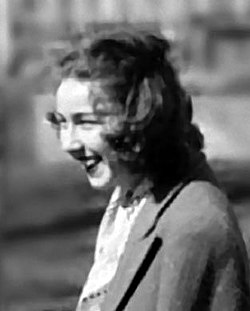Flannery O'Connor Quote
Writing this, he had reached the pit of despair and he thought that reading it, she would at least begin to sense his tragedy and her part in it. It was not that she had ever forced her way on him. That had never been necessary. Her way had simply been the air he breathed and when at last he had found other air, he couldn't survive in it. He felt that even if she didn't understand at once, the letter would leave her with an enduring chill and perhaps in time lead her to see herself as she was.
Flannery O'Connor
Writing this, he had reached the pit of despair and he thought that reading it, she would at least begin to sense his tragedy and her part in it. It was not that she had ever forced her way on him. That had never been necessary. Her way had simply been the air he breathed and when at last he had found other air, he couldn't survive in it. He felt that even if she didn't understand at once, the letter would leave her with an enduring chill and perhaps in time lead her to see herself as she was.
Related Quotes
About Flannery O'Connor
Mary Flannery O'Connor (March 25, 1925 – August 3, 1964) was an American novelist, short story writer, and essayist. She wrote two novels and 31 short stories, as well as a number of reviews and commentaries.
O'Connor was a Southern writer who often wrote in a sardonic Southern Gothic style. She relied heavily on regional settings and grotesque characters, often in violent situations. In her writing, an unsentimental acceptance or rejection of the limitations, imperfections or differences of these characters (whether attributed to disability, race, crime, religion or sanity) typically underpins the drama.
O'Connor's writing often reflects her Catholic faith, and frequently examines questions of morality and ethics. Her posthumously compiled Complete Stories won the 1972 U.S. National Book Award for Fiction and has been the subject of enduring praise.
O'Connor was a Southern writer who often wrote in a sardonic Southern Gothic style. She relied heavily on regional settings and grotesque characters, often in violent situations. In her writing, an unsentimental acceptance or rejection of the limitations, imperfections or differences of these characters (whether attributed to disability, race, crime, religion or sanity) typically underpins the drama.
O'Connor's writing often reflects her Catholic faith, and frequently examines questions of morality and ethics. Her posthumously compiled Complete Stories won the 1972 U.S. National Book Award for Fiction and has been the subject of enduring praise.
